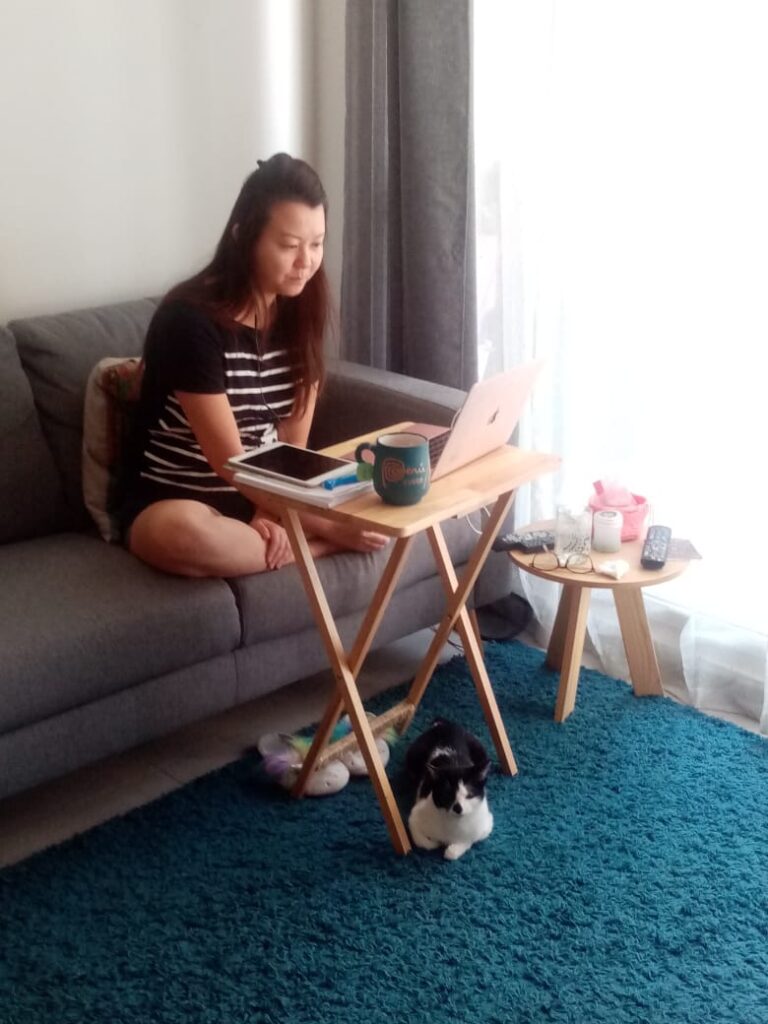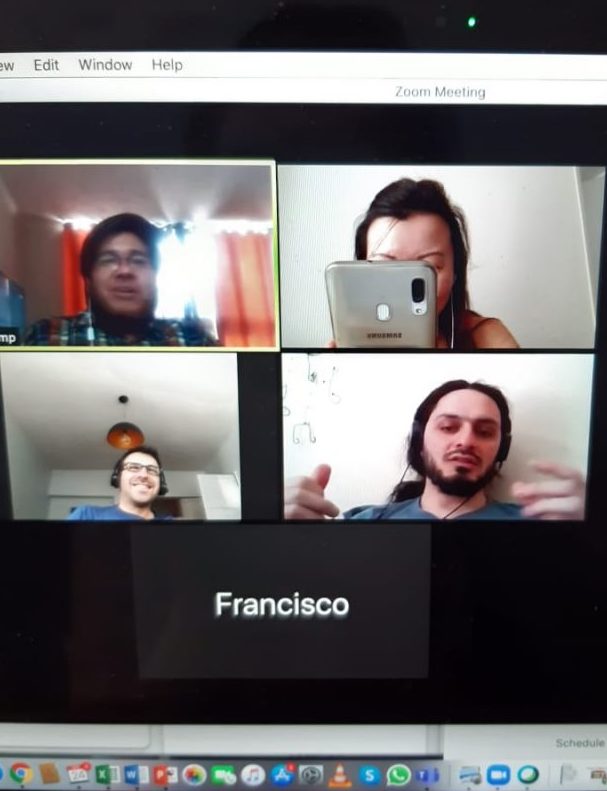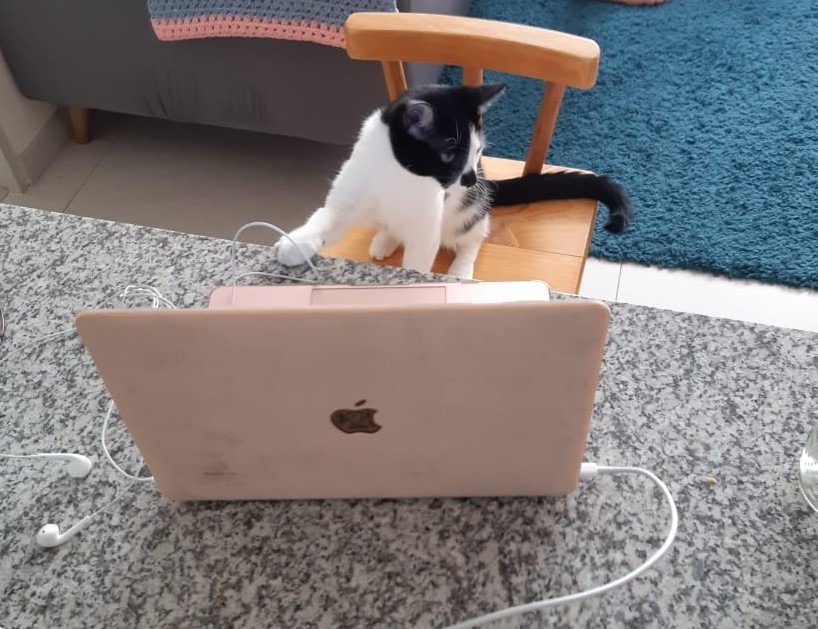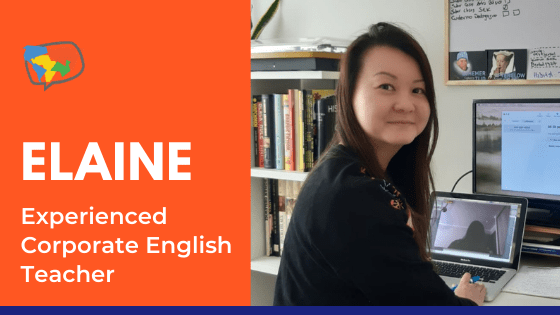With experience as a learning and development specialist under her belt, Bridge grad Elaine Choo, from Singapore, branched out to teaching English when she moved to Chile two years ago. She shares her experience adapting to Chilean culture and offers tips for building rapport with online ESL learners. Read an excerpt of the interview below, or watch the full video at the end of this post.
Hi, Elaine! Can you tell us a bit about yourself?
I studied workplace learning and business education. That was what my master’s degree was in. I worked as a learning and development specialist in corporate companies, supporting the learning and development of staff. Basically, the person that all my students interacted with in the human resources department, who planned their whole curriculum and English learning, would have been me.
How has your experience as a learning and development specialist helped you as an English teacher?
I think the transition was very easy. I suppose that I had a much easier time than maybe the teachers who have never taught in their lives – or maybe this is kind of like their first job. I think for those very young teachers, it probably took them some time to learn how to really teach and how to really engage. But for me, for the last 15 to 18 years, I’ve always been doing stand-up training. So, it’s not different. The kind of engagement that you use and do is exactly the same, whether it’s in a face-to-face model or a platform.
The other thing that was also very helpful for my students was that my background was in a corporate setting. I remember having a group class with two guys. One of the guys said, “I’m starting to get nervous because I’m going to take over this global supply weekly call with participants from different parts of the world. So, everything is going to be in English.”
I said, “We can prepare you for this. We’re going to have a mock call so that by the time you actually have to make the call, you will be less nervous and you won’t be stumbling over your English.” I told him, “My job is to make sure that you are confident when you start, and maybe you lose only 10% to 20% of that confidence at the end and not all the way.” That actually helped. He had the call and he said it was great!

Why did you choose Chile as a place to live and teach English?
I think my reasons were much simpler than anybody else’s. My husband’s Chilean, and I think that explains a lot of why I ended up in Chile. He wasn’t very keen on moving to Singapore, so we decided we will base ourselves in Chile for a few years and see how things go.
How have you adapted to this new country and its culture?
Prior to moving, I had already been to Chile a few times. And I had also stayed in Chile in 2018 for about six months before deciding to move in 2019.
The biggest difference I experienced is this Chilean sense of time. Being on time is not a virtue for Chileans. Most of them are quite flexible about showing up on time.
How has your teaching experience in Chile been?
I guess for me, my teaching experience has been varied. I started to teach in September of 2019, a month after I got to Chile. After that, there was a social movement in mid-October, so I had about one month of normal classes – getting all my students, going to the office, etc. Then, suddenly, everything kind of shut down. And then everything started again in about two or three weeks and it was very disrupted. After that, I took a summer vacation with my husband in February and came back in March, and then COVID-19 happened.
Adapting to the pandemic
I think the social movement prepared Chile for the COVID-19 situation because when the social movement happened, everyone was just kind of thrown off. The schools or the institutions that I work for actually responded super fast and moved very quickly to adapt.
Since everybody’s working from home, we’ve had to change the way we teach and migrate the idea of presential classes to video classes. I think that sort of changed the game for a lot of institutes.
So, my teaching experience actually hasn’t been super bad; it’s just been very weird. You just keep changing and you have to keep adapting.

Where are you currently teaching English?
I work for Bridge Languages, eClass, and World Class English in Santiago. On top of that, I’ve also got private students.
How did you land your teaching jobs?
I got to know this lady when I came in 2018, through a book club that I attended. We became really good friends and she was teaching for both Bridge and eClass. So, when I came back for good in 2019, I reached out to her and asked if she could give me their contact information. She managed to connect me with people in the institutes.
For World Class English, when I started, I wasn’t getting a lot of classes, so I was kind of bored. I saw this advertisement about a teaching job post on Facebook. I responded to the advertisement, we had an interview, and it worked out well.
Learn how to use another social media platform, LinkedIn, to get TEFL jobs.
How did you get your private students?
Those were definitely from recommendations from my current students. They knew a friend or a family member who wanted to learn English, and they told them, “I have English classes. I can give you my English teacher’s contact information.”
Discover ways to attract and retain English students as a freelancer.

Do you have any tips for building rapport with online English students?
- For me, the first lesson is very important, and I feel that that sets the stage, the mood, and the atmosphere.
- I don’t take a very formal approach with my classes, and I don’t really take the approach that this is going to be a class where you learn and memorize all the past tense verbs.
- I try to do a needs analysis during the first class, so I ask a lot of questions. I try to get to know the students and why they’re taking English by asking questions like what are their language goals, what do they hope to achieve, what are their challenges at this moment, and if English is a strong requirement in their workplace.
- I kind of tweak my learning style a little bit and make sure to work the students’ needs into how I conduct my classes.
You took the 120-Hour Master Certificate course. Why did you decide to take this course?
I took that course in 2018. This was kind of something just in the back of my mind because I was in Chile for six months. I wasn’t working, I was just here to spend time with my husband – at that time my boyfriend – and also to experience the country. So, I thought, I’m kind of sitting around doing nothing for five, six months, and I should do something. This would be the best time to take a teaching certificate and have that in the event that I do move for good.
So, I did it in 2018 and that was why I could start teaching really quickly when I got back in 2019.
How was your experience with the course?
I enjoyed the experience. I have my Master’s in Adult Learning, I have pedagogy training, I know how to design a curriculum, and I’ve done stand-up training, so I knew all of that already. I didn’t actually need to be taught all of those things like lesson plans and all that — I wrote lesson plans in my previous life. But I wanted to see what the difference was. I wanted to know if there was any sort of difference that you employ if the content is different.
You’re currently in Singapore for a holiday. What are your plans for the next weeks or months as the world continues to deal with the pandemic?
I’m still teaching remotely at this point, so I’m finishing up all my classes in January, and then in February, I’m taking a real break from teaching. My plan is actually to return to Chile in the middle of February and then start teaching again in March.
Honestly, I’m not sure how things are going to be in the next two to three weeks because, as you know, the COVID-19 situation is evolving very quickly and it makes me a little nervous. I hope I can get back to Chile when I’m supposed to.
Do you have any tips for teachers who want to work in Chile?
- Prepare yourselves for cultural differences.
- Prepare yourself for different types of students.
- If you can, come in with at least an A1 or A2 level of Spanish just so you can help your students better. Even if you have even just an elementary knowledge of Spanish, that helps you understand what they’re going through.
Watch the full video interview with Elaine here:










